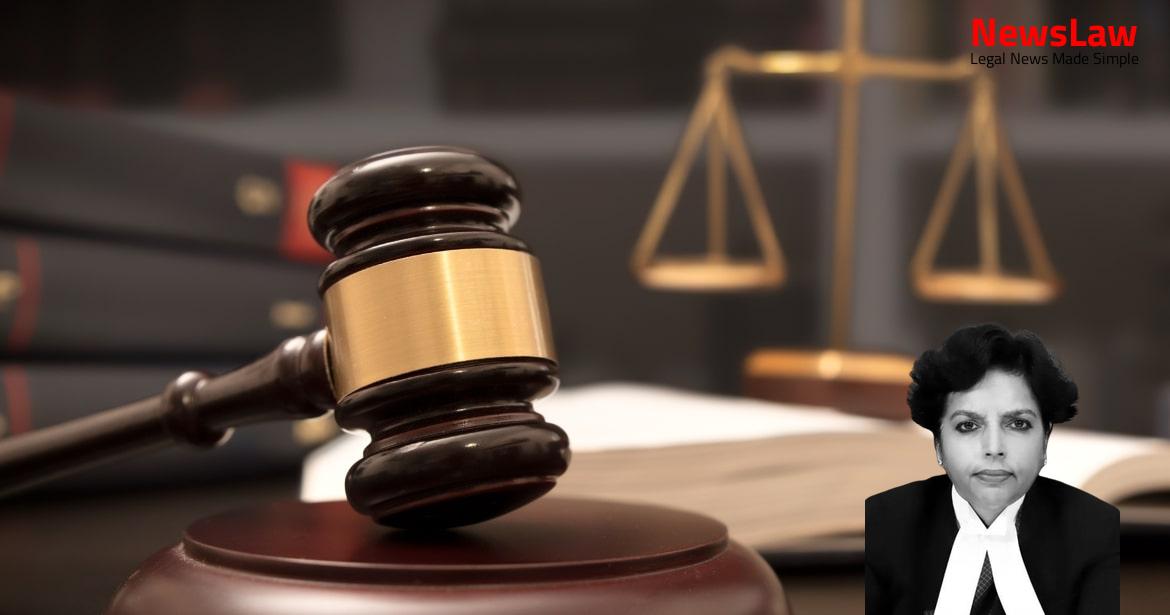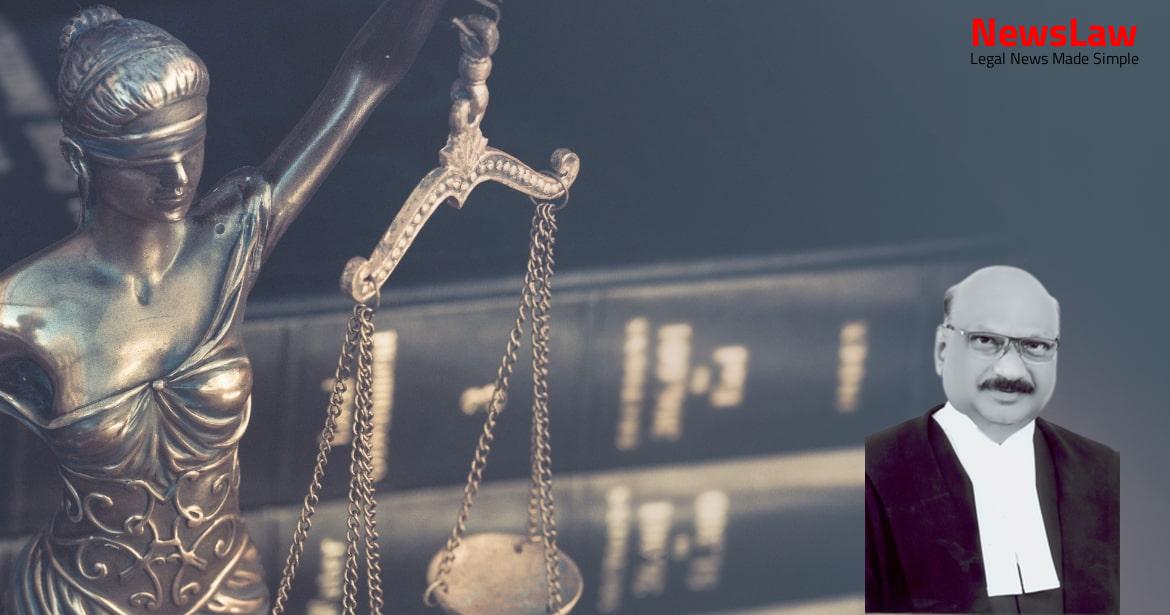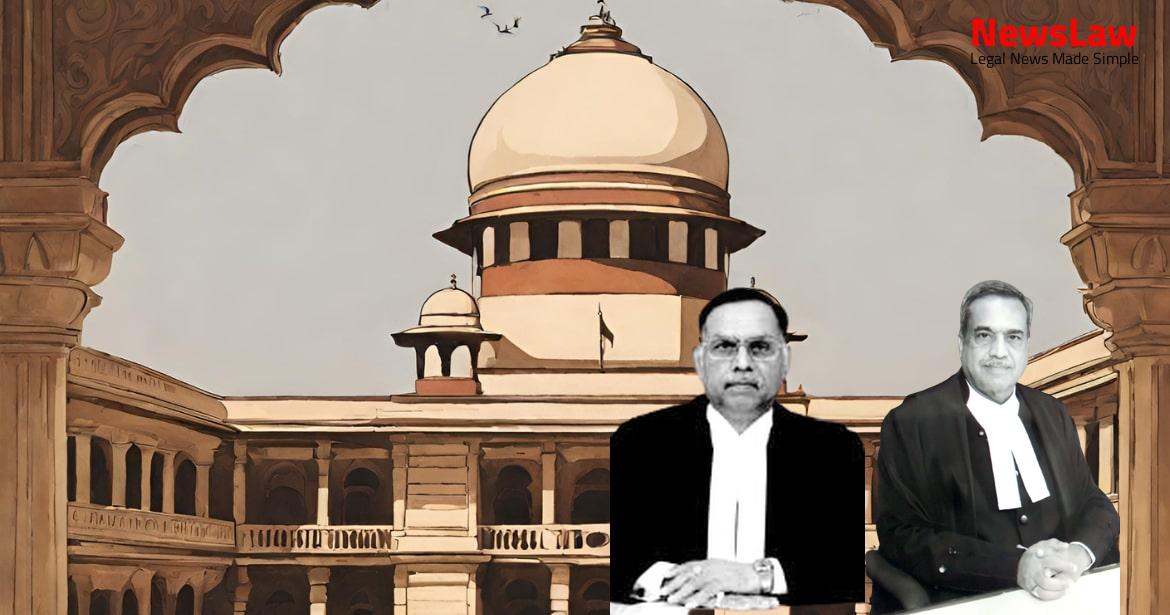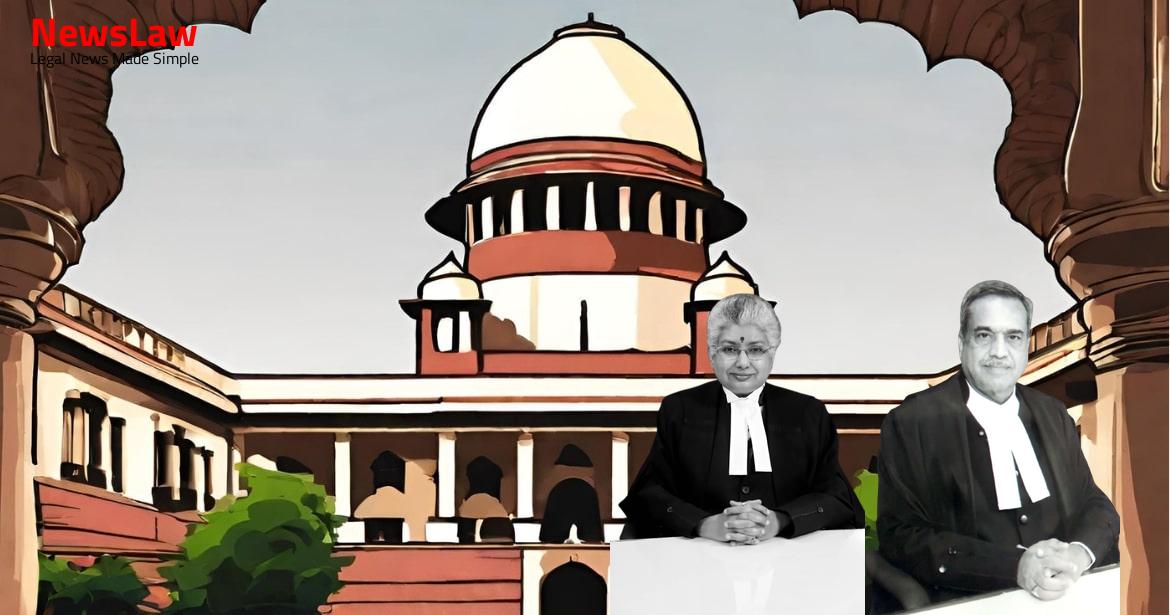This case summary focuses on the court’s in-depth scrutiny of the legal analysis in departmental proceedings. The appeal revolves around the examination of vital witnesses and the implications of not doing so. The Single Judge and Division Bench’s decisions are under scrutiny, emphasizing the pivotal role of legal analysis in upholding justice within administrative proceedings.
Facts
- Allegations against the respondent for impersonating as a Member of Parliament to cancel a transfer order.
- Appeal filed by the respondent before the Deputy Inspector General of Police, CRPF, Patna.
- Challenges made by the respondent against misconduct charges and subsequent dismissals.
- Initiation of departmental proceedings based on communicated charges.
- Petition filed by the respondent before the learned Single Judge of the High Court against extraordinary leave order.
- Appeal challenging the High Court Division Bench order dismissing the writ application filed by the respondent.
- Appellants challenged findings of no evidence before the Division Bench.
- Division Bench approved Single Judge’s findings.
- Respondent found guilty in departmental proceedings.
- Punished with removal from service, later modified to confinement to Quarter Guard.
- Enquiry Committee did not record statements of key witnesses.
- Appellate Authority noted serious lacuna in not examining vital witnesses.
- Single Judge set aside penalty, directed payment of arrears of salary to respondent.
Also Read: Presumption of Genuine Endorsements in Cheque Case
Arguments
- Mr. Rajeev Kumar Ranjan, representing the Union of India, argues that the Single Judge and Division Bench were unjustified in interfering with the departmental proceedings and penalty imposition.
- Refers to the case of State of Rajasthan and Others v. Sujata Malhotra to support the argument that High Court should only interfere with penalties if there is a clear deficiency in the departmental proceedings.
- Mr. Neeraj Shekhar, representing the respondent, argues that the decisions made by the Single Judge of the High Court and the Division Bench are legally sound.
- No interference is necessary according to Mr. Neeraj Shekhar.
Also Read: Medical Negligence and Compensation: A Landmark Decision
Analysis
- The judgment relied upon by the appellants’ counsel is not applicable to the present case.
- Even after remand, three important witnesses were not examined.
- Due to the absence of examination of these witnesses, the Appellate Authority found the charges against the respondent not fully proved.
- Based on this aspect, the Single Judge allowed the petition and the Division Bench affirmed it.
- The record shows that the Appellate Authority gave an opportunity to the Enquiry Committee to examine the vital witnesses.
- Finding no merit in the present appeal.
- Specific finding of serious lacuna in departmental proceedings for not examining vital witnesses.
Also Read: Remand of Writ Petition for Restoration and Decision on Merits
Decision
- The appeal is dismissed.
- Pending application(s) shall be disposed of in the above terms.
- No order as to costs.
- Respondent deprived of benefits for more than a decade.
- Appellants directed to clear all dues within three months.
Case Title: UNION OF INDIA Vs. SURESH KUMAR SINGH (2022 INSC 632)
Case Number: C.A. No.-004410-004410 / 2012



